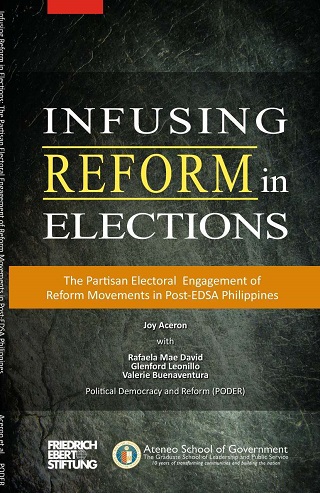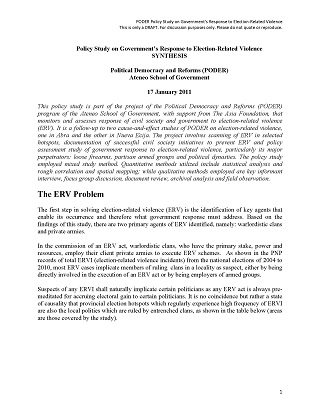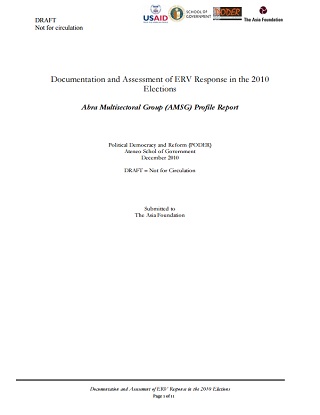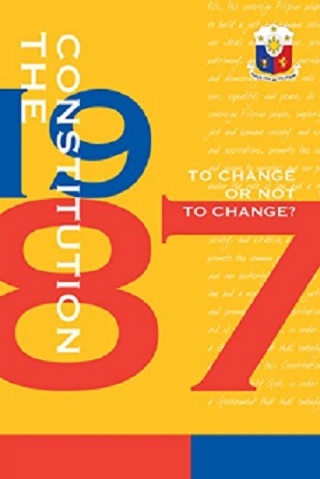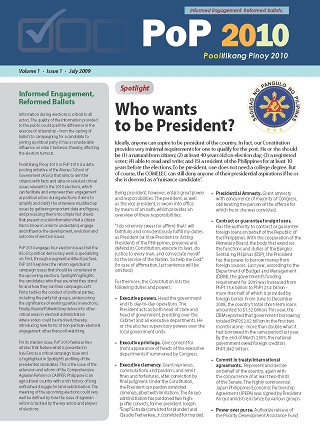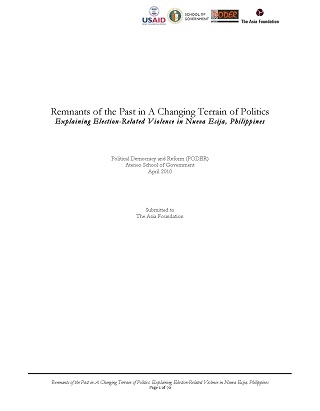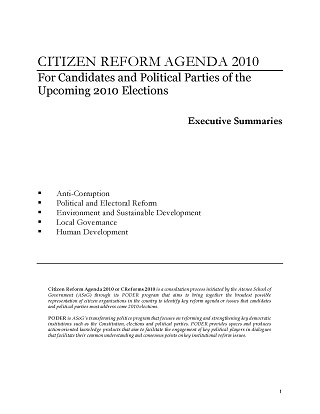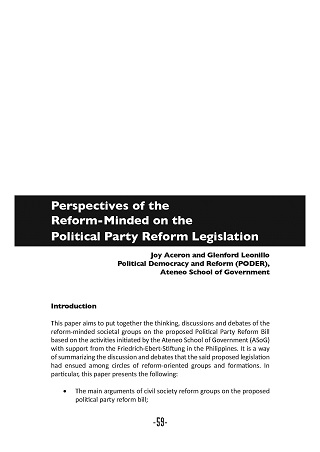Browse our resources covering Studies on Political Democracy and Reforms (PODER) Studies.
In the Philippines, since the end of martial law, civil society has been hailed as “the savior of governance,” playing the roles underperformed by the government or filling the gaps in the services needed by the people. One of the most crucial elements of civil society engagement in the Philippines is its reform work that is varied and encompassing. These actors constitute a large portion of what is being referred to as reform movements in the Philippines, which consist also of the reformers in government, political parties, local government units and other arenas.
This policy study is a follow-up to two cause-and-effect studies of PODER on election-related violence, one in Abra and the other in Nueva Ecija. The project involves scanning of ERV in selected hotspots, documentation of successful civil society initiatives to prevent ERV and policy assessment study of government response to election-related violence, particularly its major perpetrators: loose firearms, partisan armed groups and political dynasties.
These provide profiles of four initiatives in response to election-related violence (ERV) in the 2010 elections. The initiatives profiled are: Abra Multisector Group (AMSG) in Abra; Masbate Advocates for Peace (MAP) in Masbate; Vote Peace (various areas); and Good Wednesday Group (GWG) in Maguindanao.
A chapter by La Viña and Aceron in the book, Agenda for Hope: Democratizing Governance. This chapter proposes a movement for nation-building among reformist leaders from the different local government units (LGUs), the bureaucracy, the citizens’ groups, and even among the circles of some modernizing elites, that would develop a system of synergy and interdependence to be able to connect their efforts, share a common vision for the country, and eventually execute a coordinated strategy of capturing power at the national level.
Twenty-five years after its ratification, the 1987 Constitution has survived serious attempts to change it during the presidencies of Fidel Ramos, Joseph Estrada, and Gloria Macapagal Arroyo. What were the reasons for the attempts and why did they fail? For persons and organizations with valid reasons to explore Charter Change, what are the available options? What is a systematic way to explore and pursue it? These are some of the questions this book examines and answers.
PoP 2010 is a data pooling initiative of the Ateneo School of Government (ASoG) that aims to arm the citizens with facts and data on candidates for and selected critical issues relevant to the 2010 elections, thereby, facilitating and empowering their engagement as political actors during elections.
The study is a cause-and-effect analysis on election-related violence in Nueva Ecija. It seeks to explain the situation of election-related violence in the said province by adopting a action research that looks into its causes and implications, as well as the definitions and types of election-related violence that are present in the province.
Citizen Reform Agenda 2010 or CReforms 2010 is a consultation process initiated by the Ateneo School of Government (ASoG) through its PODER program that aims to bring together the broadest possible representation of citizen organizations in the country to identify key reform agenda or issues that candidates and political parties must address for the 2010 elections.
The study is a cause-and-effect analysis on election-related violence in Abra, which focuses on three possible causal factors: historical, socio-cultural and institutional. It utilizes three analytical lenses or perspectives, namely institutional analysis, power analysis and socio-cultural analysis.
This paper aims to put together the thinking, discussions and debates of the reform-minded societal groups on the proposed Political Party Reform Bill based on the activities initiated by the Ateneo School of Government (ASoG) with support from the Friedrich-Ebert-Stiftung in the Philippines.

 Forward
Forward